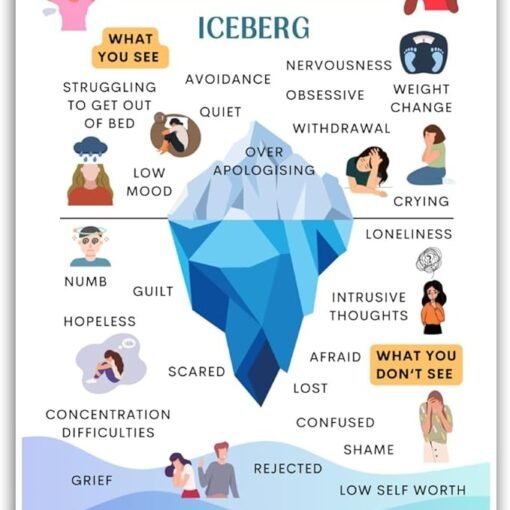
In couples counseling, one of the common patterns we see is the cycle of blame—sometimes directed at a partner but often internalized as self-blame. This dynamic can undermine trust, fuel resentment, and prevent both partners from truly understanding each other. Many couples fall into the habit of holding onto guilt, shame, or regret from past conflicts, unintentionally sabotaging the relationship. Self-blame can feel familiar and oddly comforting, reinforcing negative beliefs about oneself while creating distance and preventing real connection.
Self-Blame as a Barrier in Relationships
Self-blame can become a coping mechanism for managing difficult emotions or avoiding deeper conflicts. Instead of working through issues, some partners may channel their frustrations inward, convinced that they’re at fault or “not good enough.” This internalized blame often distracts from addressing relationship dynamics that need attention. When one or both partners are wrapped up in self-criticism, it prevents them from focusing on what the relationship needs to thrive.
In a relationship, self-blame can manifest as a partner taking on responsibility for every argument, minimizing their needs, or constantly apologizing to avoid conflict. This pattern not only reinforces negative self-beliefs but also creates an unhealthy imbalance where real issues are ignored, and resentment quietly builds.
Why We Blame Ourselves in Relationships
The tendency to self-blame often originates from past experiences. Some individuals grow up in environments where they’re conditioned to take responsibility for problems that weren’t theirs to fix. This could stem from family dynamics, past trauma, or previous relationships where they were made to feel at fault. These patterns carry over into a romantic relationship and create barriers to healthy communication and connection. Instead of allowing for vulnerability and support, partners may continue to take the blame, preventing both individuals from addressing real issues and growing together.
Moving Past Blame to Strengthen Your Relationship
Recognizing the role of self-blame in your relationship can be a decisive step toward healing and growth. When both partners are willing to confront these patterns, they create a foundation for more honest, supportive communication. Rather than falling back on familiar cycles of guilt or blame, couples can learn to approach conflicts from a place of empathy, taking ownership of their actions without resorting to self-criticism.
In couples counseling, we work on replacing blame with understanding, self-compassion, and accountability. Partners learn to address the root causes of their insecurities and break free from patterns that undermine trust and intimacy. As self-blame fades, couples often find that they’re better able to connect, resolve conflicts, and create a balanced and supportive relationship.
Building a Healthier Connection
Breaking free from self-blame requires both personal insight and mutual support. In counseling, couples learn to support each other’s growth by recognizing and challenging old patterns of self-criticism. This shift can open the door to a healthier, more resilient relationship where each partner feels valued and understood. If you’re ready to move past cycles of self-blame and build a stronger connection, couples counseling can provide the tools you need to create lasting change together.
How Examining Self-Blame Can Support Healing
Understanding where our self-blame originates is a decisive first step toward healing. By exploring the root causes of these patterns, we can break free from self-destructive habits and focus on self-compassion instead. This process can help us address other areas of emotional distress, opening the door to greater self-acceptance and a more balanced sense of self-worth.
If you and your partner are ready to break free from cycles of blame and build a stronger, more resilient relationship, couples counseling can make a meaningful difference. At Growth Therapy Group, we’re here to help you uncover the underlying patterns, foster empathy, and create lasting change in your relationship. Don’t let self-blame stand in the way of a healthy, fulfilling partnership. Reach out today to schedule a consultation at 903.749.4001. Counseling is available in Tyler and all of Texas via Telehealth,




